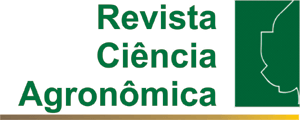Abstract
The domestic grape germination eco-physiology is a little studied aspect since reproduction occurs predominantly agamically, despite the sexual reproduction remains the main form for the selection of new cultivars. In this study, two international cultivars grown all over the world -Chardonnay and Syrahwere chosen as models of the domestic grape for the experiments in the eco-physiology of germination. The experimental design consisted of chemical, mechanical pre-treatments and combination of them as the bird ingestion pre-treatment that simulates the transit through the digestive tract of birds. Furthermore, seeds were submitted to different periods of cold stratification - 0, 15, 30, 60 and 90 days - to simulate the winter effect. Seeds were placed to germinate at different incubation temperatures, to find the optimal germination protocol. The results showed that domestic grapes retain the need for cold stratification, and the best germination temperature is represented by the fluctuating temperature that simulates spring conditions. Our results help to understand what the best germination conditions of domestic grapes are and offer a contribution to extend the knowledge on how the process of domestication may have affected the biology of Vitis vinifera L. subsp. vinifera.
Key words
Vitaceae; Vitis; Crops; Plant Physiology; Dormancy release

 Thumbnail
Thumbnail
 Thumbnail
Thumbnail

